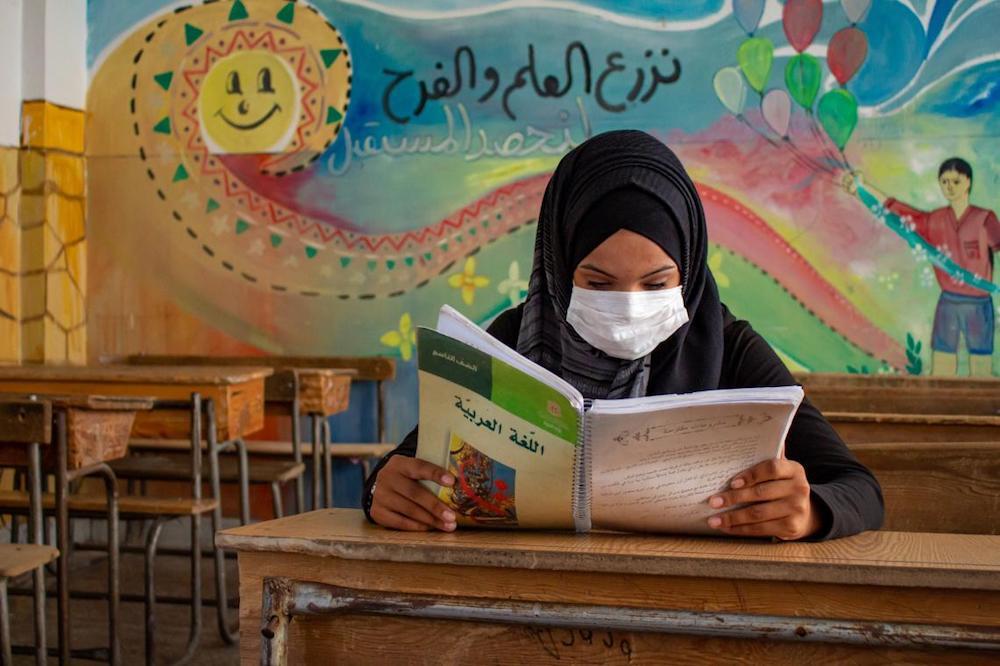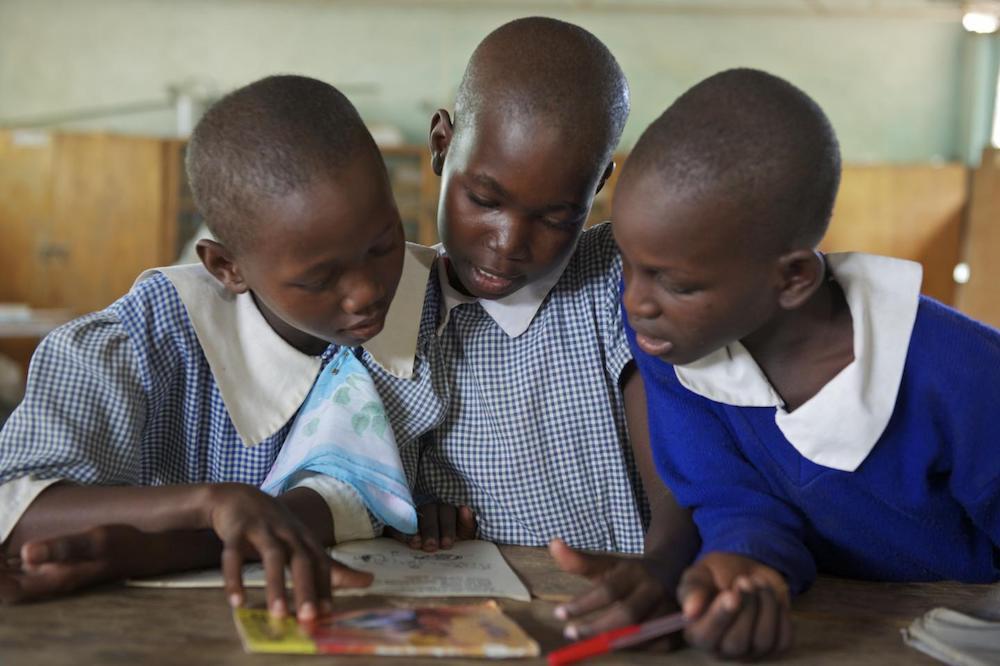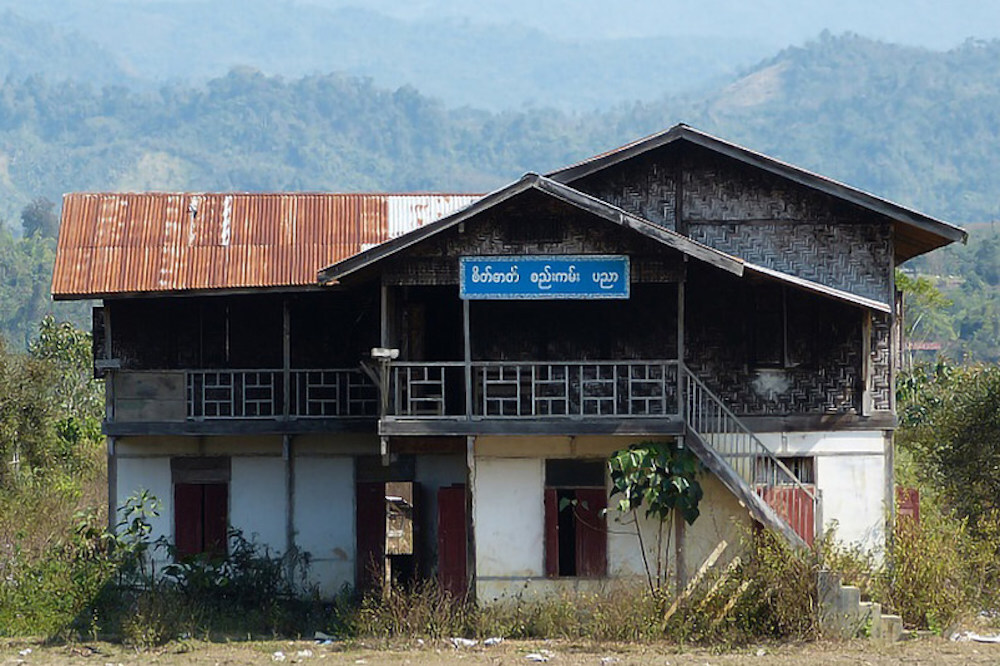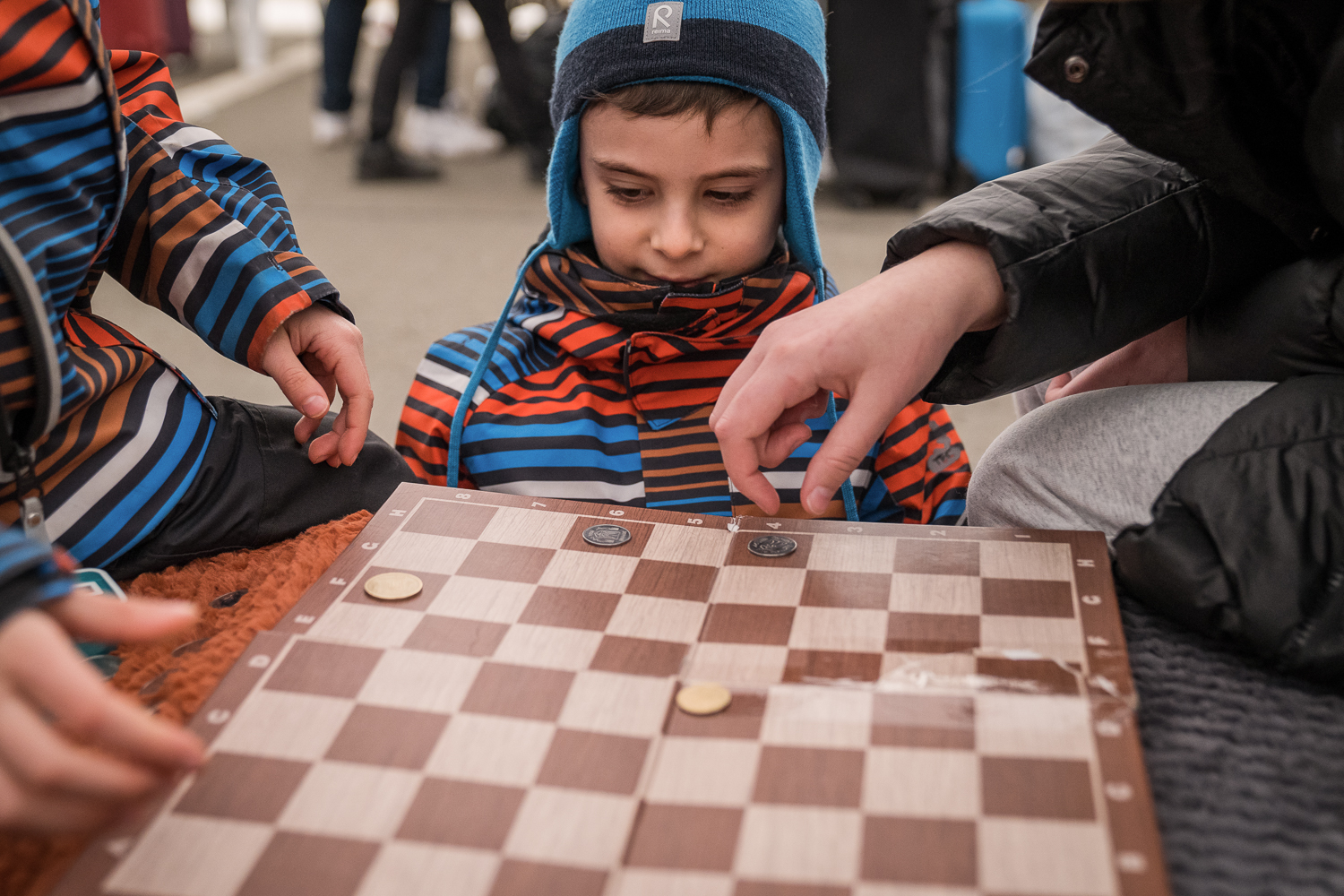
Five things you need to know this week about global education

Coronavirus and education, Education in emergencies
Textbooks boost in South Sudan
The first of more than 1.1 million textbooks were handed to schools in South Sudan this week as part of a massive programme to ensure children have the materials they need to learn.
More than 1.5 million children in 3,391 primary and 401 secondary schools across six targeted states will benefit.
In South Sudan, 2.2 million children are still missing out on education. One in three schools has been damaged, destroyed, occupied or closed due to conflict, weather events and the pandemic. Only 3.5% of girls are enrolled in secondary schools and the primary school completion rate is the lowest in the world, at less than 10%.
Over 1 million textbooks distributed to schools in #SouthSudan. 144 9219 p/s. pupils & 109,854 secondary sch. students – in 3,391 primary & 401 secondary schs will benefit from the textbooks to enhance learning thanks @EduCannotWait for the support. https://t.co/DcvRODpwM4 pic.twitter.com/k7WtPwrzTR
— Save the Children South Sudan???????? (@SCSouthSudan) March 24, 2021
The textbooks initiative is led by Save the Children in partnership with the Norwegian Refugee Council, Finn Church Aid and the country’s education ministry. It is financed by Education Cannot Wait, the fund for education in emergencies.
Rama Hansraj, Country Director of Save the Children in South Sudan, said: “Many children are not learning in South Sudan. One of the factors is that both learners and teachers do not have access to adequate reference materials, guides or textbooks that they need to effectively facilitate quality teaching and learning.”
With social distancing required during the pandemic, the extra books means fewer children will have to share.
Afghan schools aim to enrol 1m students
At least one million more Afghan children will go to school this academic year, President Mohammad Ashraf Ghani announced as classes resumed following nationwide closures due to the pandemic.
As well as the planned enrolment, he said more than 11,000 new teachers will be employed and 1,800 new schools built.
Italian Prime Minister Mario Draghi said he wants schools to start reopening after the Easter holidays. That followed protests by thousands of parents, children and teachers across the country on Sunday against what they called the unnecessary closure of schools.
Latin America and the Caribbean remains the region with the largest number of children still missing out on in-person classes – about 114 million, according to UNICEF’s latest estimates. On average, children there have lost 158 days of face-to-face learning.
Bolivian girl's classroom is a graveyard
Girl studies at the cemetery where her mother works to use the internet in Boliviahttps://t.co/xaOXCQvDCo
— Kenyannews.co.ke (@kenyannews_) March 24, 2021
Neydi, a Bolivian primary school student, logs on to virtual classes like many kids around the world during the pandemic. The only difference is the setting – surrounded by tombstones in a public cemetery in the city of La Paz.
Bolivia has kept its schools largely closed during the Covid-19 outbreak, pushing many parents to find novel ways to get their kids online for class. It is particularly challenging in a country with sporadic internet connectivity, limited access to expensive computers and high costs for mobile data.
Neydi’s mother, Jeanete Alanoca, a 30-year-old indigenous Aymara who makes a living working at the General Cemetery of La Paz, decided to take her daughter along with her to make use of the area’s free WiFi. Neydi does not have her own device and must use her mother’s cellphone to do her schoolwork.
“Before the pandemic, I sent her to school and my in-laws also took care of her and picked her up from school. Because of this situation we are in, I have to bring her to work,” Alanoca told Reuters.
Quality education for vulnerable Kenyan children

The Kenyan government and the Qatar Fund For Development will work together to provide quality primary education for 250,000 out-of-school children.
The programme will reach the most marginalised children, including those with disabilities in urban informal settlements and arid and semi-arid lands.
It will be implemented by Education Above All Foundation’s (EAA) strategic partner UNICEF and will ensure quality teaching and learning, as well as renovating classrooms and constructing WASH (water, sanitation and hygiene) facilities.
EAA’s Educate A Child programme has already enrolled more than 540,000 children. The foundation’s CEO, Fahad Al-Sulaiti, said: “This agreement is another important step in our efforts to ensure that out-of-school children in Kenya fulfil their right to a quality primary education that will provide them with tangible skills and knowledge.”
Forces occupy schools in Myanmar

Security forces in Myanmar have reportedly occupied more than 60 schools and university campuses across the country, according to UNICEF.
In one incident, security forces reportedly beat two teachers and left several others injured, the agency said in a joint statement with UNESCO and Save the Children.
“These incidents mark a further escalation of the current crisis and represent a serious violation of the rights of children. Schools must not be used by security forces under any circumstances”, they stressed.
Myanmar is not among 106 countries which have signed the Safe Schools Declaration – a commitment to protect schools from attack and occupation by military or other armed forces.
More news

